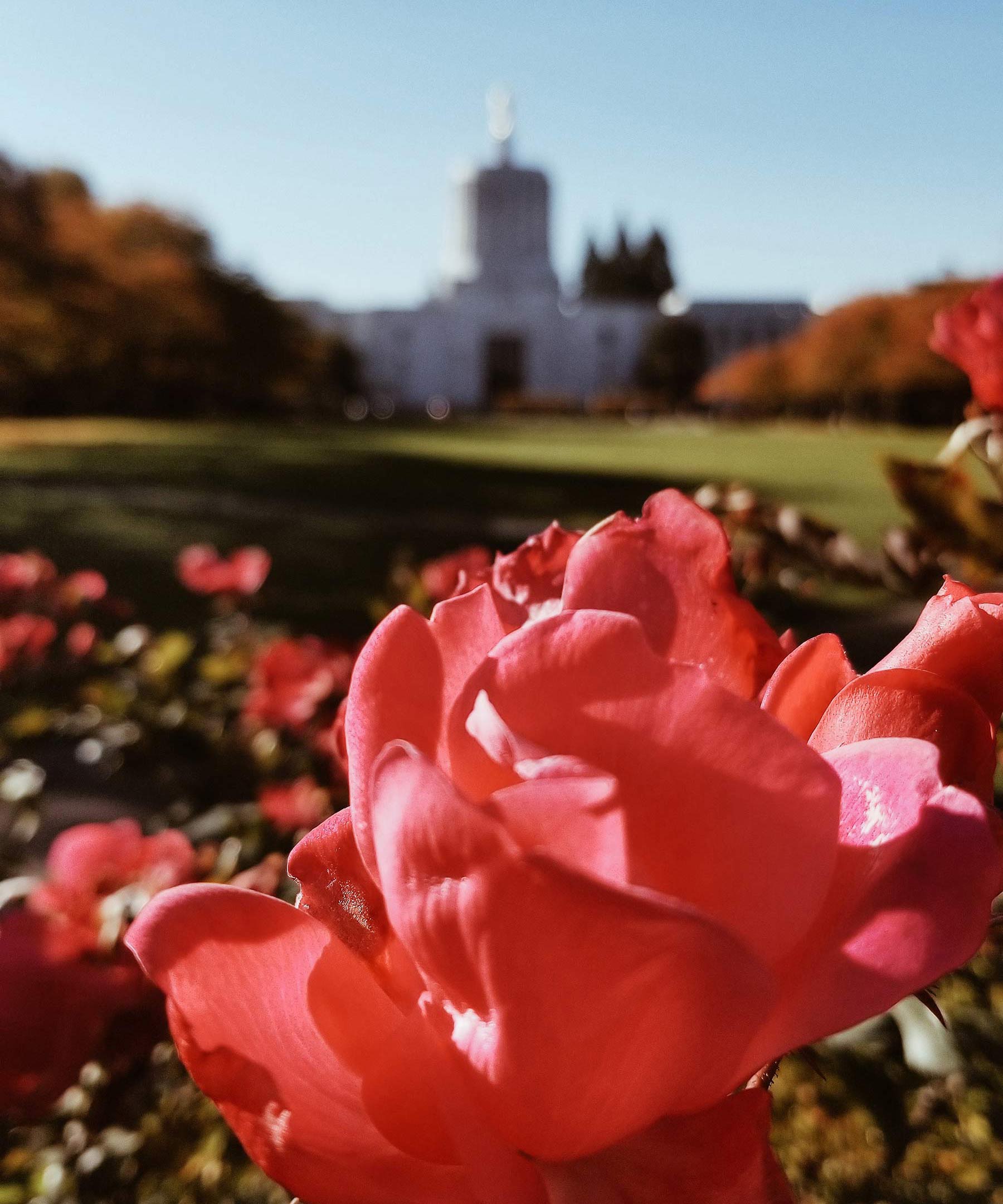Letter from FBO: Advancing Education Equity at the 2021 Legislative Session
Oregon must affirm that investment in educational equity is not a luxury or a supplement—it is essential.

05/26/21 ∞ MIN READ
Amanda Manjarrez is Public Policy and Government Affairs Director at Foundations for a Better Oregon.
Amanda Manjarrez is Public Policy and Government Affairs Director at Foundations for a Better Oregon.
Heading into the final stretch of Oregon’s 2021 legislative session, I couldn’t be more inspired by the wisdom, heart, and power that community partners have brought to the virtual halls of the State Capitol. As Oregon seeks to build a more inclusive, equitable, and racially just public education system, community advocates are working closely with legislators to shape what that system looks like, and what policies and investments we need to get there.
Thanks to the collective efforts of the Oregon Partners for Education Justice, the Reimagine Oregon Project, and Oregon’s Early Childhood Coalition, community-driven education priorities are moving forward. Just a few days ago, the Legislature honored Oregon’s linguistic diversity with the final passage of House Bill 2056, carried by Rep. Teresa Alonso Leon, which allows students to fulfill language arts requirements in languages other than English. And Gov. Kate Brown has already signed House Bill 2052, a policy carried by Rep. Tawna Sanchez and spearheaded by Oregon’s federally recognized Tribes, requiring school districts to allow students to wear Tribal regalia at graduation ceremonies.
Meanwhile, state economists are projecting an unprecedented level of state revenue for the next biennium. As legislators craft the 2021-23 state budget, they are well-positioned to fully fund the Student Success Act and other community priorities. This year and onward, Oregon must affirm that investment in educational equity is not a luxury or a supplement—it is essential.
Even as federal aid bolsters Oregon’s balance sheet, the burden of the COVID-19 crisis and recession is still disproportionately falling on Black children, Indigenous children, children of color, and children navigating poverty. And yet, if higher-than-expected revenues trigger Oregon’s individual tax rebate, known as the ‘kicker,’ our state’s highest earners stand to benefit the most. To put that in perspective, the bottom 20% of income earners would receive about $25 dollars while the top 1% would receive over $12,000 on average.
For a shared recovery and a better Oregon, we must all take a hard look at the way we collect, distribute, and target Oregon’s resources. Only then can we advance more equitable and coherent investments in education that support every child to learn, grow, and thrive.
“Community advocates are working closely with legislators to shape what an inclusive, equitable, and racially just public education system looks like, and what policies and investments we need to get there.”

The first episode explores big questions: What was the intention behind Senate Bill 13? What can it look like to teach Indigenous Studies as a white teacher?
We're thrilled to welcome Louis Wheatley to our team as FBO/Chalkboard Project's Strategic Communications Director.
Amanda brings creative leadership and deep commitment to social justice to her work as Director of Public Policy and Government Affairs at FBO/Chalkboard Project.
Community leaders exchange ideas and strategies to fulfill the vision of the Student Success Act.
Looking ahead to 2021, FBO/Chalkboard Project is committed to rekindling this momentum with a policy agenda that centers children, families, and communities.
We’re witnessing the value of Oregon's teachers and early learning providers, doctors and nurses, public servants, and so many more.
Sign up for our newsletter to get the latest news, resources, and more from Foundations for a Better Oregon.